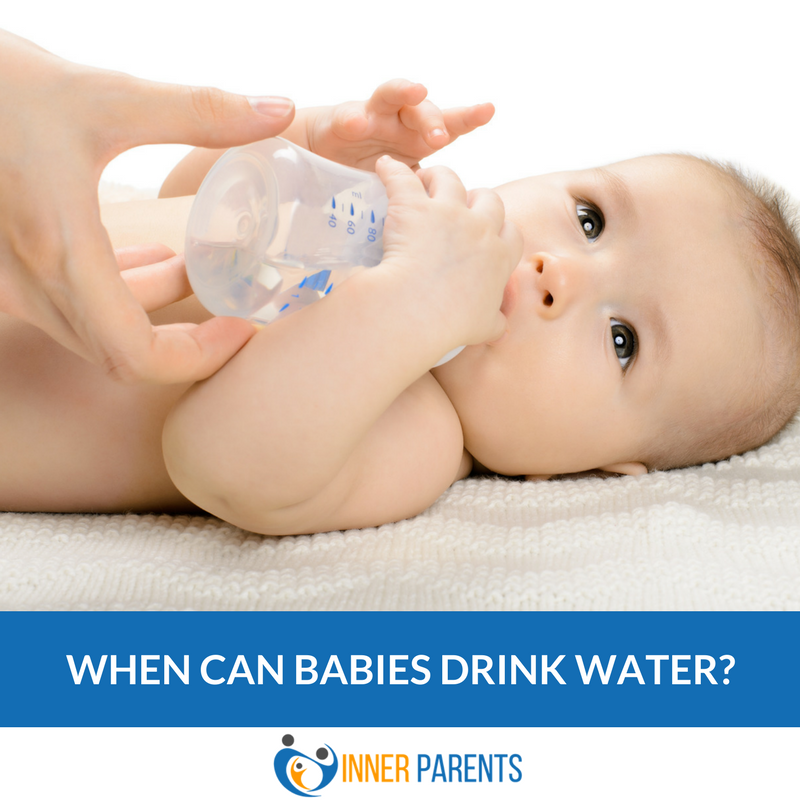When Can Babies Drink Water?
When you have a baby, there are a lot of questions that come along. One question that you may wonder about is when your baby can start drinking water. While there is a clear timeline on when you can introduce solid foods to your baby, there is not much clarity on when your baby can have water.
Several factors determine when your baby can drink water such as her age, how much food she eats, and what type of activities that she is doing. However, the simple answer to the question of when your baby can begin drinking water is not before he/she is six months old.
How Safe is it to Give a Baby Water?
There are several reasons that you should not give your baby water before they are six months old.
First, giving your young baby water can affect their nutrient absorption. When you give your baby water, it fills them up with empty calories, which means they will not be able to absorb the nutrients provided by formula or breastmilk. This can lead to the baby losing weight and may elevate the levels of bilirubin in their bodies.
Another reason that you should not give your young baby water is because of water intoxication. Giving a baby too much water can dilute the nutrients in their body. This may result in reduced body temperatures and possibly seizures.
Since the kidneys are not fully developed in children under the age of six months, giving them water can cause the kidneys to flush out electrolytes and sodium, which can cause the baby to become dehydrated.
Additionally, when you give your young baby water, they will be less likely to drink their formula or breastmilk because their bellies will be full of water. This means that they are not getting the nutrients that they need to thrive.

How Much Water Should Babies Drink After Six Months of Age?
After a baby reaches six months of age until they are a year old, it is okay to introduce water in small amounts. It is around six months when a baby begins eating solid foods. When this occurs, the intake of milk is typically reduced from about thirty ounces a day to around twenty ounces each day. Of course, this also depends on the type of solids that are introduced as well as how often the baby is eating.
Along with their formula or breastmilk, a baby may need about two or four ounces of water each day. This depends on their level of activity. Some babies from six to twelve months still do not need to drink any water during the day.
How Much Water Should Babies Over 12 Months Drink?
After a baby reaches a year old, the amount of milk they drink is reduced considerably, to around twelve ounces per day. When your baby is one, chances are that they have tried a variety of foods and they have an established routine of meals. Because of these changes, your babies need to drink water naturally increases.
The USDA recommends that toddlers drink about 1.3 liters of water each day. This includes water from food, milk and other sources. Being properly hydrated replenishes lost fluids and also helps to ease bowel movements.

Tips for Giving Water to Your Baby
Boiling Water
It is a good idea to boil any water that you are giving to your baby. This will kill any microorganisms that are found in the water, which reduces the risk for infections. Sterile water should be used when preparing formula as well. (Please make sure the boiling water is cool before giving it to your baby.)
Bottled Water
Bottled water is not considered safe for babies as it is typically high in sulfate and sodium. Provide your baby with water that is low in both of these. A liter of water should have less than 250 mg of sulfate and 200 mg of sodium. Bottled water that has deionized, purified, distilled and demineralized is okay to give your baby.
Formula
It is not okay to add more water to formula. Make the formula as directed on the can. Adding more water raises the risk of water intoxication, which means that your baby will not be taking in the nutrients that they should be.
Tap Water
If you choose to give your baby tap water, boil it first as mentioned. It is also important to make sure the water is not fluoridated. Use a filter that removes additives.
Cups or Bottles
Numerous different sippy cups and bottles can be used to introduce your baby to water. You may find that it will be a lot of trial and error before you find a cup or bottle that works for your baby if they have been breastfeeding exclusively. Remember, only give small amounts of water at a time when you are first introducing it.
In Conclusion
After you have a baby, many questions arise. When it comes to what you are giving your baby, you should always be open to any questions that you may have. While water may seem harmless and maybe even something that you think your baby needs, this is not always the case.
If your baby is younger than six months, you should not be giving them any water. Most pediatricians recommend waiting until six months to even begin introducing other foods besides formula and breastmilk.
As a rule of thumb, before your baby is a year old, they are likely getting all of the water that they need from a formula, breastmilk, and the foods that they are beginning to eat. After your baby turns a year old, introducing water as a supplement for breastmilk and formula is safe.
References:
http://www.aap.org/advocacy/releases/dec08infantformula.htmhttp://www.reuters.com/article/us-water-babies-idUSCOL16728820080521

